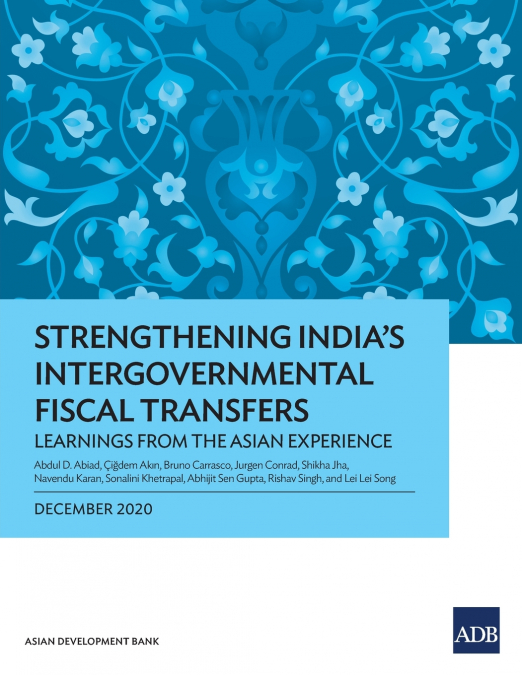
Abdul D. Abiad / Abdul DAbiad / Bruno Carrasco / ГҮiДҹdem AkДұn
This publication assesses IndiaвҖҷs fiscal federalism framework and recommends improvements based on learnings from the experiences of Australia, Indonesia, Japan, the PeopleвҖҷs Republic of China and the Republic of Korea.A mechanism for allocating performance-based grants to Indian states is proposed based on improvements in governance index. The publication contributes to a deeper understanding of decentralization reforms in developing countries. It synthesizes learnings from the experiences of Australia, Indonesia, Japan, the PeopleвҖҷs Republic of China and the Republic of Korea on the design of intergovernmental fiscal transfer systems and the use of performance-based transfers for promoting subnational governance and outcomes in social sectors such as education and health.